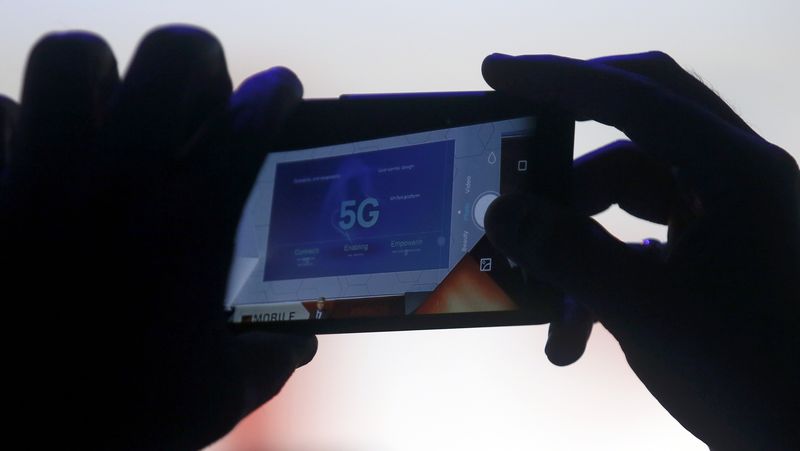By Julia Fioretti and Leila Abboud
BRUSSELS/BARCELONA (Reuters) - The European Union is looking to sign agreements with China and Japan and the United States to cooperate on developing the next generation of mobile broadband as it seeks to help its companies catch up in the race to develop such technologies.
Europe, once a leader in the 1990s in the second-generation GSM technology standard for mobile phone networks moving into the digital era, has fallen behind the United States, Japan and South Korea in the deployment of the latest 4G standard for mobile broadband services.
The region's network operators including Britain's Vodafone and Spain's Telefonica (MADRID:TEF) were slower to move to 4G than Japan, Korea and the United States and adoption in Europe remains lower compared to other advanced economies.
European policymakers are now trying not to repeat the mistakes of the past and are seeking to be at the forefront of developing the standards for 5G, which promises much faster video downloads, denser network coverage and the possibility of connecting billions of everyday electronic objects to create "the internet of things".
"With 5G, Europe has a great opportunity to reinvent its telecom industrial landscape," Guenther Oettinger, the EU's Commissioner for the Digital Economy and Society, told the Mobile World Congress in Barcelona on Tuesday.
In June last year the European Commission signed an agreement with South Korea in which the two sides committed to cooperating on setting technical standards and ensure the necessary radio frequencies are able to support the new network.
"It is our intention to sign similar agreements with other key regions of the world, notably Japan, China, and the United States," Oettinger said.
The Commission will soon start formal discussions on 5G with China, according to a person familiar with the matter, which is also keen to have its say on what 5G should do. China is home to the world's second-biggest maker of mobile network equipment, Huawei [HWT.UL], and ZTE, the fifth biggest.
But the chief executive of France's Orange said work remained to be done on 4G, whose rollout across Europe has been patchy and slow.
"We need to prepare for 5G but let's not jump too fast. We should enjoy 4G," he said.
Most industry experts expect the first commercial deployments of 5G in the run-up to the Tokyo Olympics in 2020.
Much work remains to be done to set technical standards for the technology, and figure out exactly what it is supposed to do that current 4G gear cannot, experts say.
In the meantime, companies that make mobile network equipment such as Sweden's Ericsson, Huawei, Finland's Nokia and France-based Alcatel-Lucent (PARIS:ALUA) are jockeying for position and carrying out experiments with operators to prepare for 5G.
Japan's NTT DoCoMo is already working with Nokia and Ericsson to develop networks running at high frequencies for use in the 5G wireless era - technology expected to be showcased at the 2020 Tokyo Olympics.
Meanwhile Huawei has said it will invest $600 million in 5G research and expects to have a network ready for deployment by 2020.
"We are closely working with our customers to get to 5G. It is the only way to fully meet the demand of machine to machine technology," said Huawei's chief executive Ken Hu.
The head of Nokia, Rajeev Suri, said that he thinks the drive to develop 5G technology promises to be a "three-horse race" between Ericsson, Huawei and his firm, leaving out the fourth biggest equipment maker, Alcatel-Lucent.

"I don't aspire only to be third," said Suri on a panel on Tuesday. "We will move up."